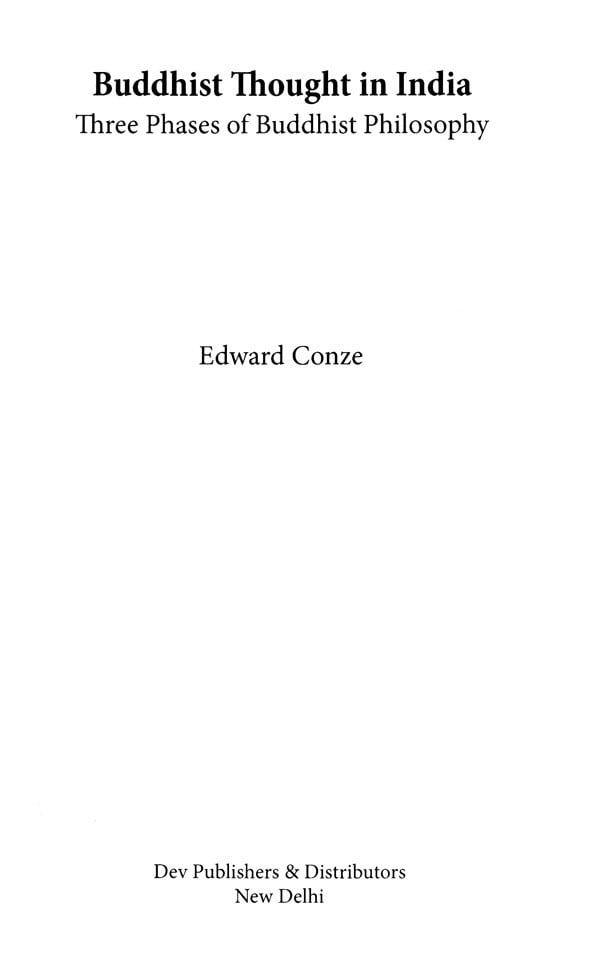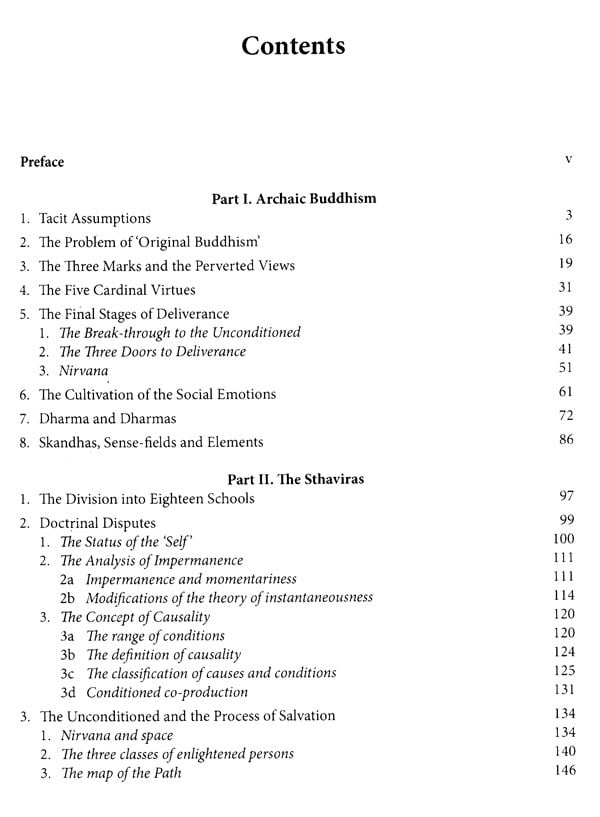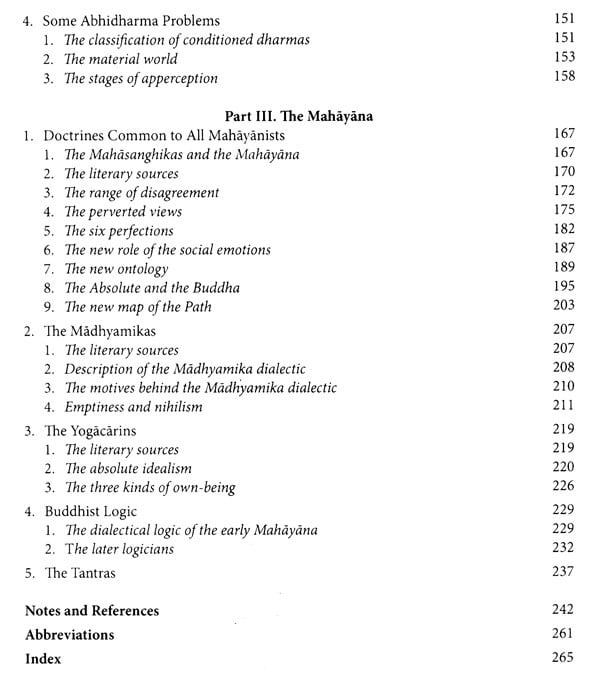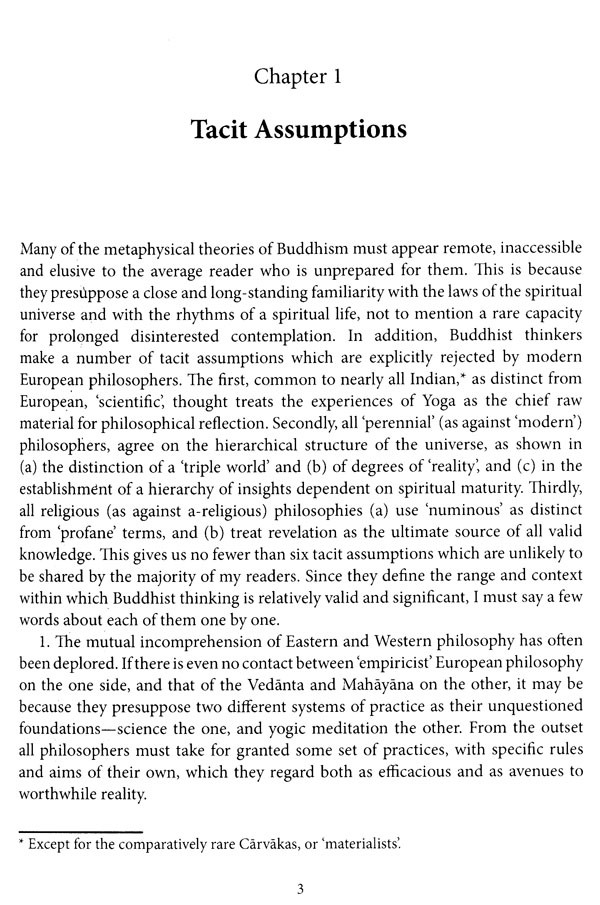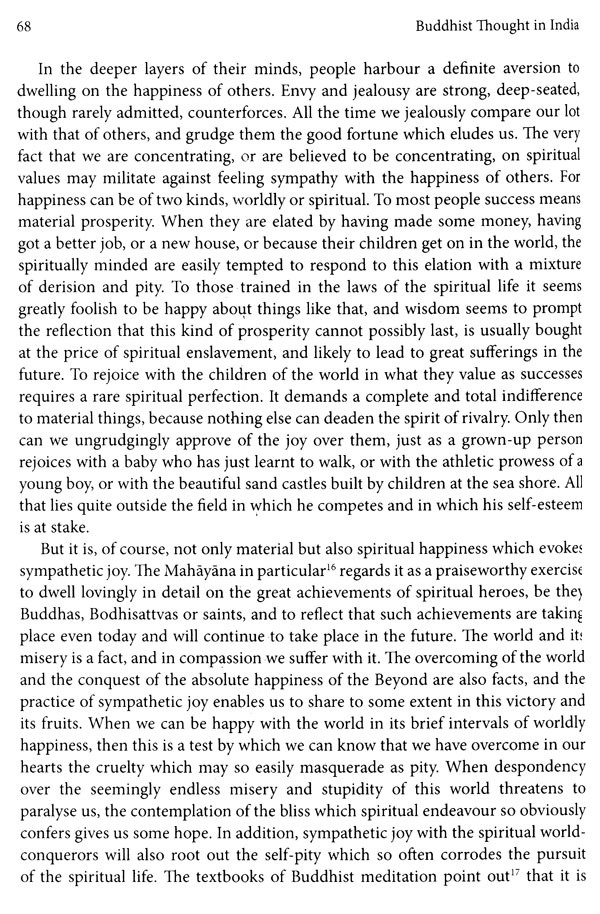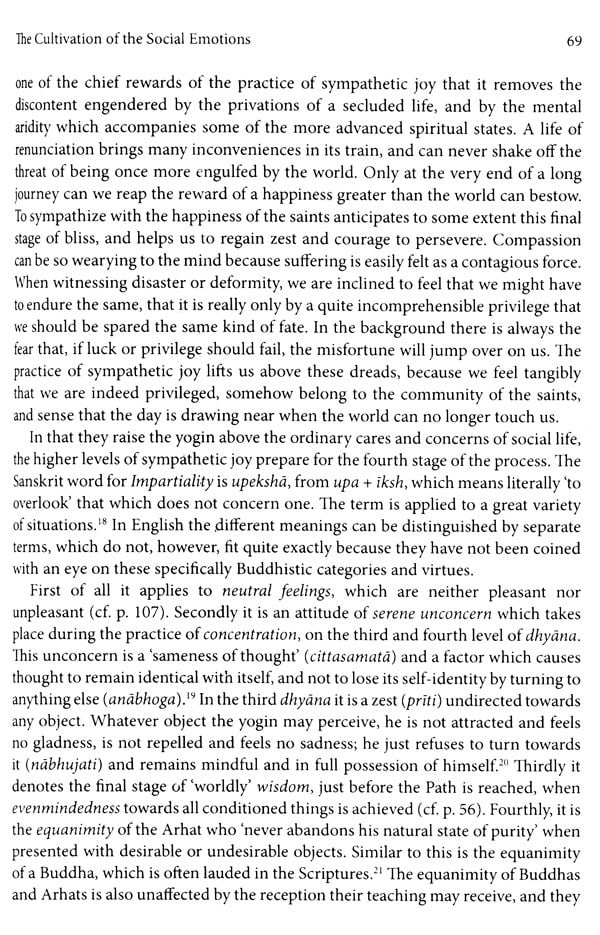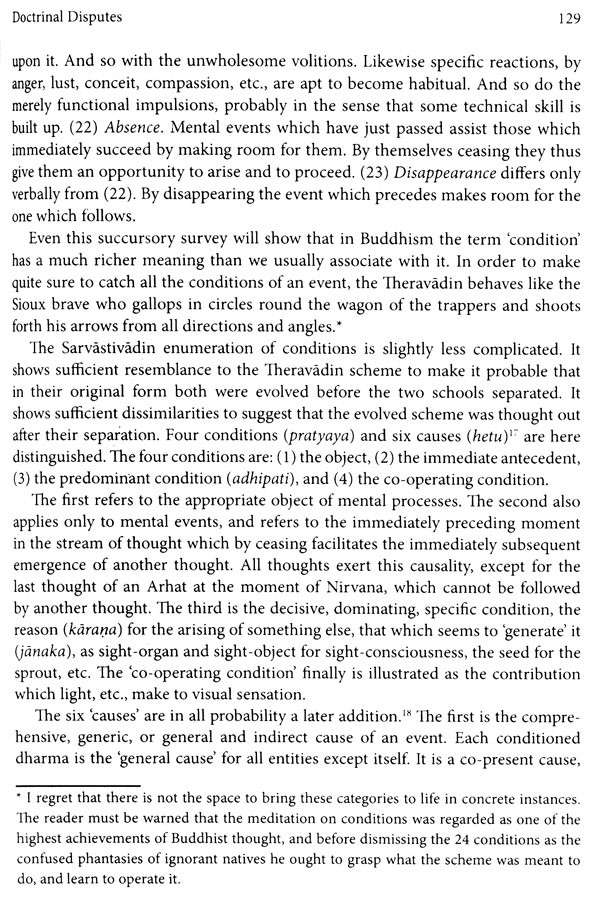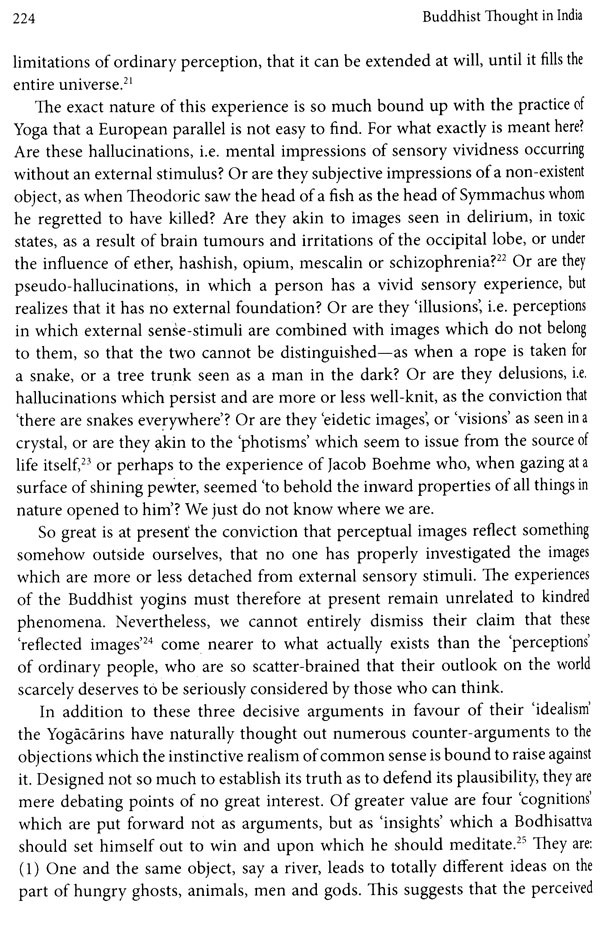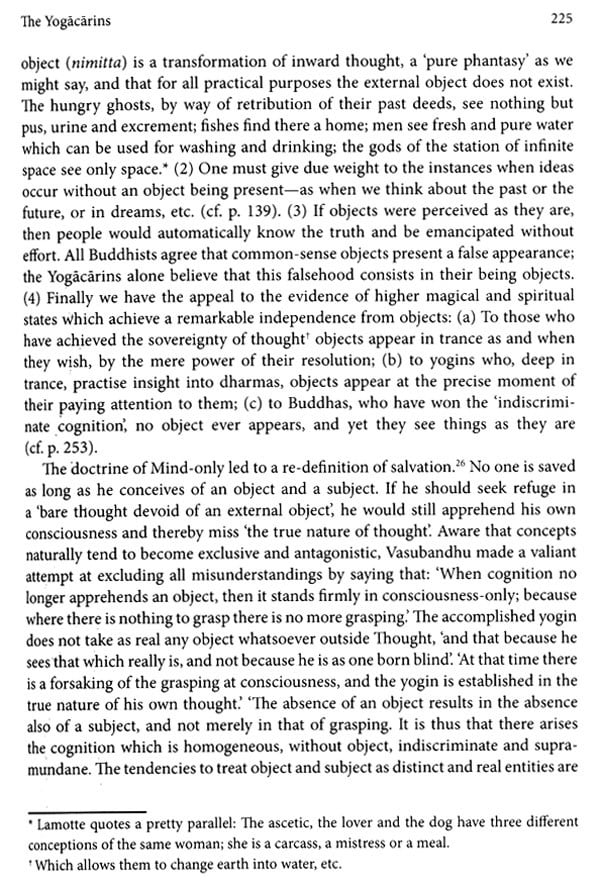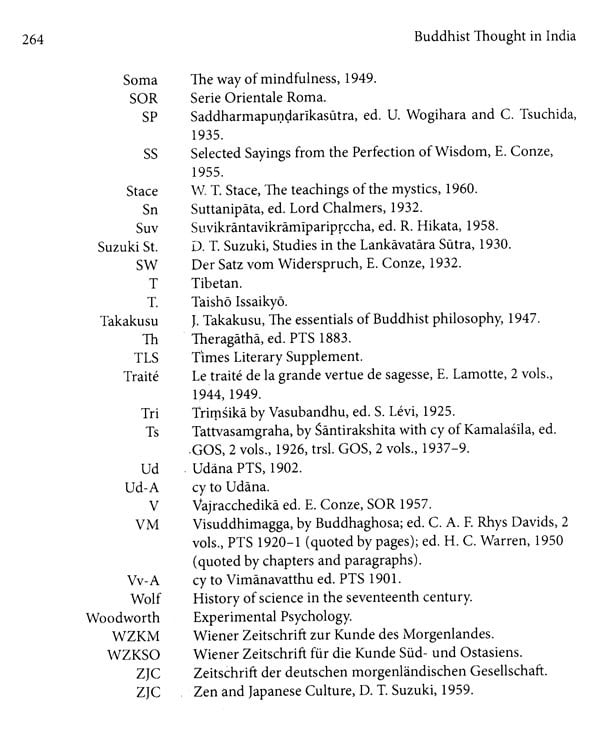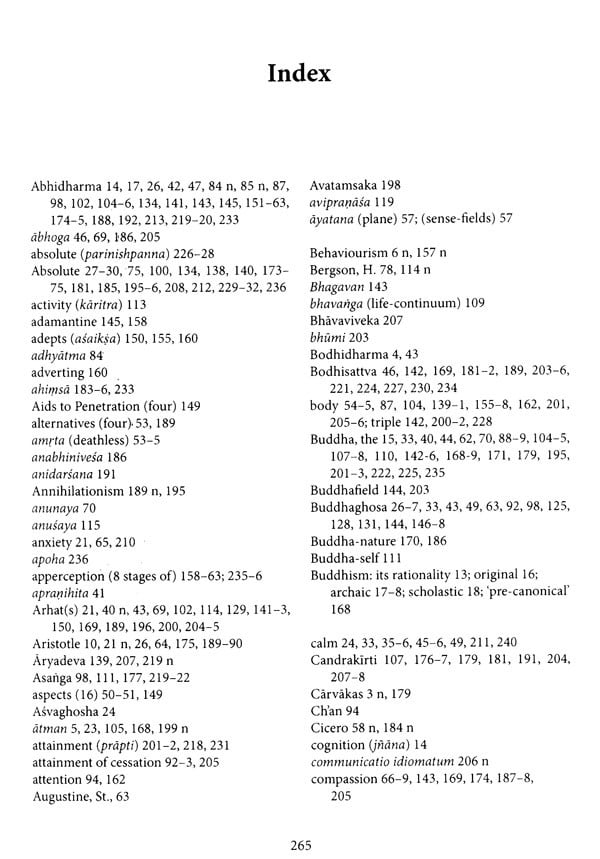About the Book This book "Buddhist Thought in India' written in a lucid style by Edward Conze interprets the principal themes of Buddhist thought. The themes being: Archaic Buddhism, The Sthaviras and The Mahayana. The book is a sequel to the author's 'Buddhist Meditation' (also published and available from us), which is a collection of the most important traditional accounts of Buddhist meditational practices. Some familiarity with these practices will greatly assist the reader of this book, which derives the tenets of Buddhist philosophy from the meditational experiences of the Buddhist yogins. In the book, the author has aimed at furthering the understanding, as distinct from the bare knowledge, of Buddhist thinking.
Preface This book sets out to discuss and interpret the main themes of Buddhist thought in India. The time is not yet ripe for the production of a comprehensive academic handbook, and in any case such an undertaking would require much more space than I had at my disposal. There has been no room to do justice to the infinite details of Buddhist philosophizing, and also the references at the end have been kept brief and might have been multiplied indefinitely. The emphasis is everywhere on those aspects of the doctrine which appear to me to be indubitably true or significant. Throughout I have aimed at furthering the understanding, as distinct from the bare knowledge, of Buddhist thinking. It would have been easier to string together a lot of quotations, but what would have been gained in ostensible erudition would have been lost in demonstrable insight. In presenting Buddhist philosophy as an plausible and valid system. I have never lost sight of its function as a spiritual method designed to win emancipation from this world. 'As contrary to the ways of the whole world has this Dharma been demonstrated. It teaches you not to seize upon dharmas, but the world is wont to grasp at anything."
"Buddhist Thought in India' had from the very start been planned as a sequel to my 'Buddhist Meditation' (Allen & Unwin, 1956, 1959), which is a collection of the most important traditional accounts of Buddhist meditational practices. Some familiarity with these practices will greatly assist the reader of this book, which derives the tenets of Buddhist philosophy from the meditational experiences of the Buddhist yogins.
It is now thirty years since this book was first begun. Its completion has been postponed and its execution partly spoiled by a new threat to quiet contemplation which even fifty years ago was happily almost unknown and which never troubled The developments of the Mahayana in China and Japan have been omitted, for no other reason than that I do not know the languages. This limitation is not as serious as it sounds. Most of the creative work was done in India, and even "Zen' is not half as original as it has been made out to be.
**Contents and Sample Pages**
